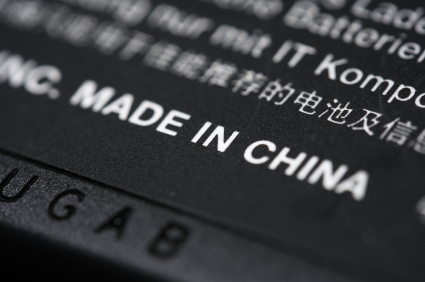
 “No other country shocks the global economic hierarchy like China.” This statement is from the book China.Inc by Ted C. Fishman, written in 2005.
“No other country shocks the global economic hierarchy like China.” This statement is from the book China.Inc by Ted C. Fishman, written in 2005.
With my extensive experience in the Chinese market, I know how important it is for you and your business to understand the ramifications of the Chinese influence on the U.S. and global economies and vice-versa. A clear understanding of some of the key issues will help you make sound decisions if you are doing or considering doing business with a Chinese enterprise, directly or indirectly.
I’ve prepared for you a four part series to share what I’ve learned about doing business in and with Chinese companies. In this first of the series below, you’ll find a broad view, big picture information that you may find surprising. It sets the stage for future articles dealing with how your business can best manage in this emergent economic climate.
What you need to know about The Chinese Economic Picture
It’s a new China, no doubt about it. With a huge workforce, a movement toward capitalism, and an economy that is estimated second behind only the U.S.), China is surely a political and economic force that continues on a growth pattern like never before.
Your business, directly or indirectly, likely feels the ramifications of China’s incredible impact on the world market. Consider:
- China continues to make products and product parts that are good or better quality for less cost than competitors and this is expected to continue. This means continued pressure on your business to find ways to be cost effective.
- Despite a dip as a result of the recent global economic crisis, business confidence in China recovered and is generally high, although lower than in 2010 due to the effect of the European economy. China is determined to lead the world and while the numbers are always suspect due to reporting issues, the country continues on that path.
- Government policies in China have supported a large number of rural Chinese moving into cities and taken manufacturing jobs, creating both a huge workforce AND a huge market of consumers.
- One of the most important changes to the China manufacturing scene is that China not only makes finished goods, but a staggering number of the parts used by other country manufacturers to make their products. So while your business might not be directly interacting with China, it is probable that another company you work with is.
- Experts predict continued economic growth for China in 2012, although the pace might be slightly slower than over the past several years, which has been, by all accounts, growth unprecedented in terms of world economy.
- Even as many experts disagree on the economic forecast for China, they do agree that the Chinese government is so targeted on growth that any hits to their economy will likely be countered with government policies to encourage more and continued growth.
- Because China is managing for inflation, the yuan inflation rate has declined in 2011 and China is expected to allow for more growth in 2012.
Although many competing countries and businesses continue to complain about China’s ability to tap a reliable workforce and produce for less, all the factors I’ve listed (and others) indicated your business needs to think outside the box, find cost effective ways to compete with this new giant, and the right people who know just how to work for you in this market.
(Sources: http://www.forbes.com/sites/billconerly/2011/12/19/chinas-economic-forecast-2012-2013-a-business-perspective/ ; http://www.tradingeconomics.com/china/gdp-growth; http://blogs.wsj.com/chinarealtime/2011/12/19/why-predicting-china%E2%80%99s-economic-growth-is-so-hard/; China.Inc, Ted C. Fishman, 2005)
